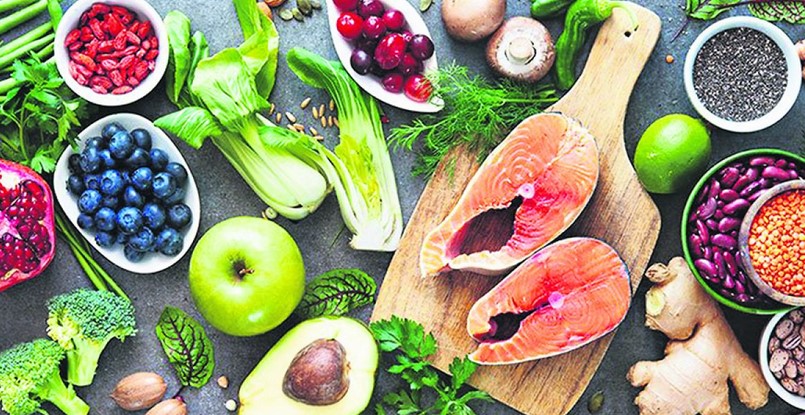List of Foods That Are Part of the Mediterranean Diet
The Mediterranean diet is an eating plan that emphasizes foods that come from the Mediterranean region. It was first developed in the 1960s, drawing on the cuisines of France, Italy, and Spain. Here’s a list of foods that are part of the diet. These foods are low in fat, high in fiber, and low in calories.
If you’re in the market for a new diet, consider the Mediterranean diet. Ideally, you should base your diet on these healthy Mediterranean foods: vegetables, fruits, seafood, legumes and whole grains. This type of diet promises to fight against heart disease and cancer, while helping to lower blood pressure and cholesterol levels.

Grass-fed meat
Grass-fed meat is on this diet’s list of foods because of its high-quality fatty acids. Meat from pastured animals contains more omega-3 fatty acids and is high in antioxidants. The Mediterranean diet also recommends eating fish and seafood, both of which are high in omega-3 fatty acids and other nutrients.
Eggs
Eggs are an important part of the Mediterranean diet. They provide a good source of protein and other healthy vitamins and minerals. Whether boiled or fried, eggs can enhance your meals.
Fish
The Mediterranean diet is a healthy eating plan without too many restrictions. It emphasizes whole, unprocessed foods and a focus on fresh fruit and vegetables. According to Suzy Weems, professor of nutrition science at Baylor University, a typical Mediterranean diet should include nine servings of fruits and vegetables daily. She suggests a combination of leafy greens and red, orange, and yellow fruits and vegetables. Fruits like apricots, dates, and figs fit in nicely with the Mediterranean diet.
Figs
Figs are a wonderful addition to a Mediterranean diet. A Mediterranean diet is rich in fruits and vegetables, including tomatoes and figs. This diet recommends that you eat nine servings of fruits and vegetables each day. While you should eat mostly greens, you can also add some red, orange, and yellow vegetables. Fruits that fit into the Mediterranean diet include apricots, cherries, dates, and figs.
Nuts
Nuts are a common part of the Mediterranean diet. Although they are high in calories, they contain healthy fats, including monounsaturated and polyunsaturated fats. These fats raise good cholesterol and reduce bad cholesterol. They also make good snacks. But scientists are realizing that they overestimate the number of calories in nuts, since most of the calories are lost during digestion. Just a handful of nuts a day can provide a substantial amount of energy.
Figs are good source of antioxidants
Figs are one of the best sources of antioxidants in the Mediterranean diet. They are available in many forms including dried, fresh, and canned. They can be found as early as May in the U.S. and may last until the fall. This fruit does not travel well, so it is best to purchase them when they are fresh. Dried figs are easy to find, don’t contain added sugar, and can be eaten fresh or frozen.
Olive oil
The Mediterranean diet is an excellent choice if you’re looking for a way to reduce your intake of animal products while still eating healthy foods. In general, the Mediterranean diet is based on fish and vegetables, and is characterized by a lower amount of meat and processed foods. The benefits of this type of diet are numerous.
Beans
Beans are a staple food on the Mediterranean diet. They are a great source of fiber, protein, and iron. They are also a good source of magnesium and potassium. Pulses are rich in phytochemicals such as alkaloids, saponins, tannins, and phenolic compounds. And because they are high in protein, they also help lower cholesterol.

Peas
Peas are a staple in the Mediterranean diet, and they are a fantastic source of fiber, protein, and nutrients. In just one serving, they provide about 20% of your daily value (DV) for fiber, iron, and magnesium, and they are low in fat. They also provide adequate amounts of all nine essential amino acids.
Lentils
The Mediterranean diet is known for being high in plant-based foods. It’s also low in animal products, focusing primarily on fish. This diet is known to have several health benefits.
The Mediterranean diet, which is heavy in fruits and veggies, low in sugar and saturated fat, and full of whole grains, fish, olive oil and red wine is beneficial to both your heart and your waistline. Studies show that the Mediterranean diet can reduce your risk of heart disease, stroke, cancer and obesity. No wonder why it’s consistently ranked as one of the healthiest diets you can follow.
